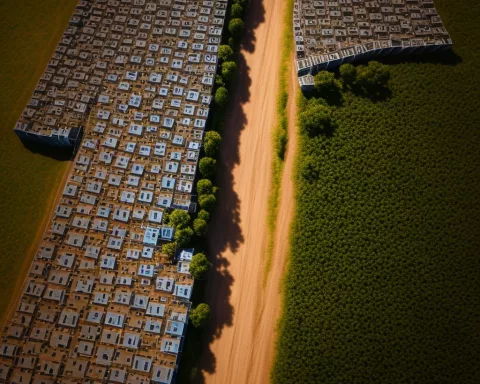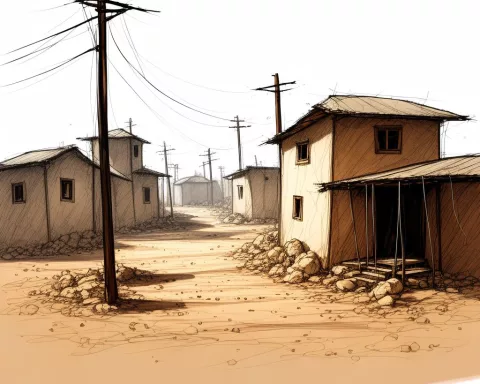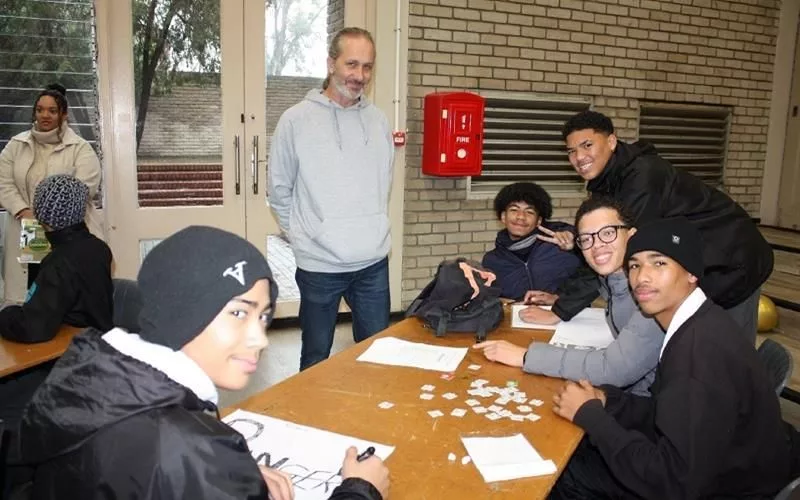The South African government aims to provide safe and affordable housing for all citizens. This includes disaster readiness, durable infrastructure, community involvement, sustainable growth, social equality, and conservational guardianship. The government has implemented policies to promote inexpensive housing alternatives and collaborations between the public and private sectors. They have also undertaken rural housing solutions and legislative measures to oversee the home building industry and safeguard housing consumers. Deputy Minister Hon. Tandi Mahambehlala emphasized the government’s dedication to this vision in her recent address to Parliament.
What is the vision for human settlements in South Africa?
The government’s vision for human settlements in South Africa is to provide all citizens with safe, comfortable, and affordable living spaces. This includes disaster readiness, durable infrastructure, community involvement, sustainable growth, social equality, and conservational guardianship. The government has been making strides in providing affordable housing through policies that promote inexpensive housing alternatives like subsidies, tax benefits, and collaborations between the public and private sectors. Additionally, rural housing solutions and legislative measures have been undertaken to oversee the home building industry and safeguard housing consumers.
In the resonating corridors of the government, Deputy Minister Hon. Tandi Mahambehlala took a stance in the House of Representatives, advocating for Budget Vote 33: Human Settlements for the fiscal year 2024/25. Her address, rich with historical allusions and futuristic perceptions, created a sense of importance and motivation amongst her listeners.
A Vow for Secure, Comfortable Housing
Deputy Minister Mahambehlala initiated her discourse by invoking words from the Freedom Charter, encapsulating the government’s vision for the upcoming years of the nation. “There Shall be Houses, Security and Comfort!” she declared. These phrases, derived from the Freedom Charter, stand as more than just hollow promises, but instead serve as the impetus for the national objective to provide all citizens with safe, comfortable and affordable living spaces.
Following the recent calamities that have scarred various regions of the country, she acknowledged the considerable impact these incidents have had on human dwellings. The destruction of infrastructure, societal disruption, and environmental damage are just a few of the difficulties these communities grapple with. However, as she interpreted, these hardships emphasize the essentiality of disaster readiness, durable infrastructure, and community involvement.
Mahambehlala lauded the relentless efforts of her team, who have been actively aiding vulnerable communities and providing necessary solutions. This direct approach towards crisis management reflects the government’s dedication to its citizens.
Emphasizing Urbanization and Sustainable Development
Shifting focus towards the issue of urbanization, a universal trend that directly affects the living standards of individuals and communities, she stressed the significance of sustainable growth, social equality, and conservational guardianship in forming human dwellings. These three elements, she reasoned, are fundamental in guaranteeing dynamic, habitable communities.
The government has been making strides in providing affordable housing. Mahambehlala highlighted the endeavors made to ensure everyone has access to affordable and suitable housing through policies that promote inexpensive housing alternatives like subsidies, tax benefits, and collaborations between the public and private sectors.
Rural Housing Solutions and Legislative Measures
In the rural expanses, the government’s First Home Finance scheme has hastened the provision of affordable homes. Despite obstacles, advancements have been made in transferring housing units to beneficiaries through the military veterans housing scheme. To further bolster these initiatives, several empowerment programmes have been launched to assist specific groups in the housing sector.
Deputy Minister Mahambehlala also drew attention to the fact that regulatory actions have been undertaken to oversee the home building industry and safeguard housing consumers. Through the National Home Builders Registration Council (NHBRC), the government has aimed to educate over 34,000 budding home builders from historically disadvantaged sections between 2024 and 2029.
She recognized the priceless contributions of the Gift of the Givers, expressing appreciation for their unwavering dedication to supporting our communities.
The Future of Housing: A Collective Responsibility
Mahambehlala urged Parliament to endorse Budget Vote 33 for Human Settlements, underlining its pivotal role in sculpting the future of the country’s communities. The crux of her argument was straightforward: human settlements, with all their intricacy and diversity, are the bedrock of society. Therefore, they deserve our utmost attention and financial commitment.
This address marked yet another stride towards actualizing the vision of the Freedom Charter. Through Deputy Minister Mahambehlala’s words and deeds, the government manifests its dedication to ensuring that all citizens have the right to choose their residence, experiencing comfort and security. Though the journey might be long and peppered with hurdles, with collective determination and commitment, the vision can transition into reality.
What policies has the South African government implemented to provide affordable housing?
The South African government has implemented policies that promote inexpensive housing alternatives like subsidies, tax benefits, and collaborations between the public and private sectors. These policies aim to provide all citizens with safe, comfortable, and affordable living spaces.
What is the government’s focus on disaster readiness and durable infrastructure?
The government’s vision for human settlements includes disaster readiness and durable infrastructure. The recent calamities that have scarred various regions of the country have emphasized the essentiality of disaster readiness and durable infrastructure. The government has been making strides in providing solutions to aid vulnerable communities.
What is the significance of sustainable growth, social equality, and conservational guardianship in forming human dwellings?
Sustainable growth, social equality, and conservational guardianship are fundamental in guaranteeing dynamic, habitable communities. The government aims to provide all citizens with access to affordable and suitable housing through policies that promote sustainable growth, social equality, and conservational guardianship.
What initiatives has the government launched to assist specific groups in the housing sector?
Several empowerment programmes have been launched to assist specific groups in the housing sector. The government’s First Home Finance scheme has hastened the provision of affordable homes in rural expanses. Advancements have been made in transferring housing units to beneficiaries through the military veterans housing scheme.
What regulatory actions has the government undertaken to safeguard housing consumers?
Regulatory actions have been undertaken to oversee the home building industry and safeguard housing consumers. Through the National Home Builders Registration Council (NHBRC), the government has aimed to educate budding home builders from historically disadvantaged sections between 2024 and 2029.
What is the role of Budget Vote 33 for Human Settlements in sculpting the future of the country’s communities?
Budget Vote 33 for Human Settlements plays a pivotal role in sculpting the future of the country’s communities. Human settlements, with all their intricacy and diversity, are the bedrock of society. Therefore, they deserve our utmost attention and financial commitment. Deputy Minister Mahambehlala urged Parliament to endorse Budget Vote 33 for Human Settlements, underlining its significance in sculpting the future of the country’s communities.












